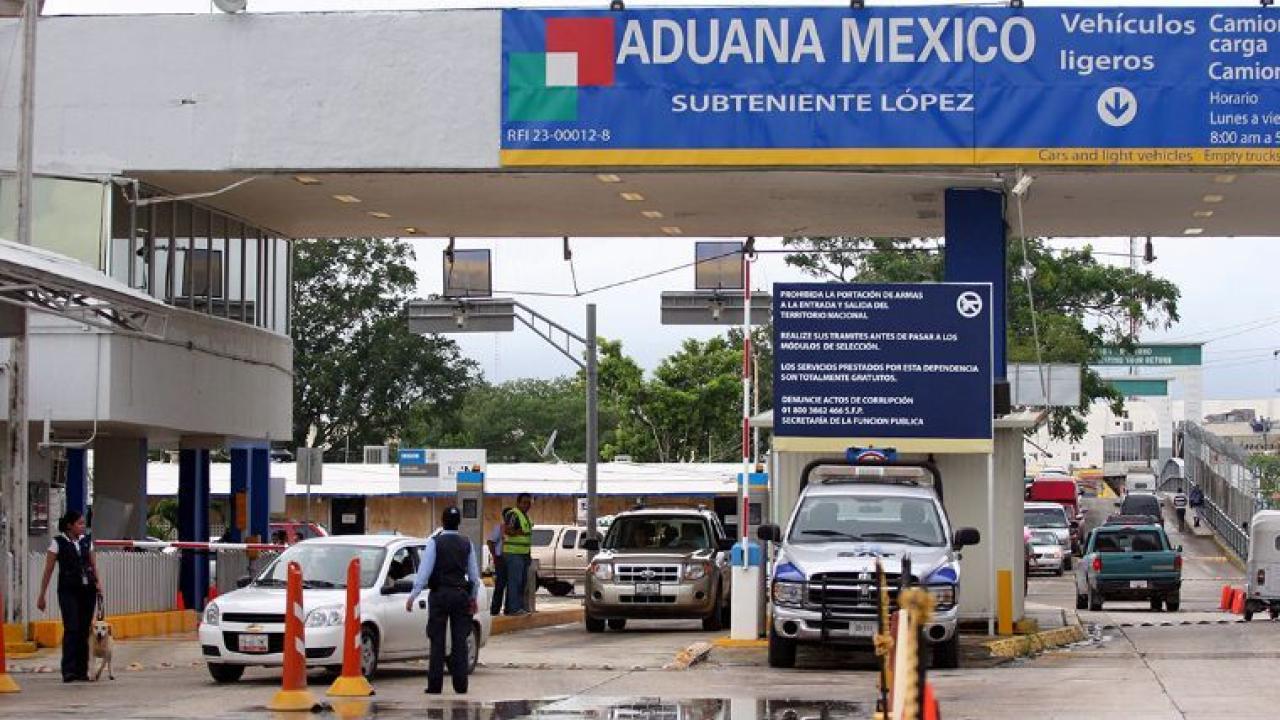
A total of US$ 60,932 million was obtained through foreign trade operations, 0.3% more than in 2023.
The revenue collected by the Mexican national treasury through the 50 customs offices operating in the country continued to fail to return to the levels observed prior to the Covid-19 pandemic, according to information from the National Customs Agency of Mexico (ANAM).
The data revealed that last year, a total of 1 trillion 238.361 billion pesos (US$ 60.932 billion) were obtained through foreign trade operations, which represented an increase of just 0.3% compared to what was recorded at the end of 2023.
"The growth is due to a gradual recovery in VAT collection, which is related to the value of the Mexican peso. As well as a real decrease in the IEPS of 9.5%, this is due to a lower volume of hydrocarbon imports," ANAM explained in a report.
However, the result at the end of 2024 continues to be 6.6% below the levels observed in 2019, prior to the Covid-19 pandemic and the economic crisis.
These events caused global trade to be affected by mobility restrictions.
Jorge Cano, coordinator of the Public Spending and Accountability Program of México Evalúa, indicated that this is the result of lower gasoline imports, which has resulted in lower IEPS revenue.
“It is not worrying, but it is limiting because lower revenue from imports limits the capacity of public spending. It does not seem so worrying because the main component that is affecting revenue is the IEPS part, which indicates a lower dependence on fuel consumption, and also because the General Import Tax (IGI) side is growing, which reflects a constant growth with the issue of economic links at an international level,” he explained.
Meanwhile, ANAM also reported that 21.9 million foreign trade operations were carried out last year, which represented an increase of 2.2% compared to 2023.
Of these, 9.6 million operations were exports, while 12.3 million were imports.
SEA TRAFFIC LEFT FIVE OUT OF EVERY 10 PESOS
According to the ANAM report, half of the revenue collected last year was through foreign trade operations carried out at maritime customs.
In this way, the 17 maritime customs offices operating in the country left the treasury 600,779 million pesos (US$ 29,560 million), 49.7% of the total customs collection, but it also meant a reduction of 4.4% compared to the previous year.
In the case of border customs, they left resources for 404,322 million pesos (US$ 19,894 million) in 2024, 33.5% of the total, and 5.6% more compared to what was recorded in 2023.
Finally, the 12 internal customs offices generated total revenues of 203,529 million pesos (US$ 10,014 million), 4.6% more compared to the end of 2023, which represented 16.8% of the total collected in customs.
The declared value of operations increased by 4% compared to the previous year, amounting to 30.11 trillion pesos (US$ 1.4 trillion).
NEW HEADLINE
A few days ago, Mexican President Claudia Sheinbaum announced that there would be a change of command at ANAM, with Rafael Marín Mollinedo returning to head the agency.
Marín Mollinedo is no stranger to ANAM. He previously headed the agency for six months during the previous administration, which he later left to become an ambassador to the World Trade Organization (WTO).
In this way, he will be in charge of an agency that will be essential for increasing tax collection in a year where, through spending cuts and increased public revenues, it is hoped to achieve fiscal consolidation and reduce the deficit.
In addition to increasing tax collection, Marín Mollinedo will also have to deal with one of the biggest burdens on customs, which has been corruption. Now, he will have to coordinate the elements of the National Defense Secretariat (Sedena) that are in customs.
Last December, Sheinbaum reported that 40 customs agents had been found to have committed irregularities and omissions, and that seven customs agent patents had been cancelled.
In addition, to combat smuggling, tax evasion and avoidance, it was established last year that the 861 active customs agents are jointly responsible for imports and exports, as well as for the payment of contributions, and may therefore be subject to various sanctions.
"By making customs agents co-responsible, we seek to increase revenues for social programs and public investment, as well as to boost the country's economy and reduce poverty and inequality," the Presidency explained in a statement.









